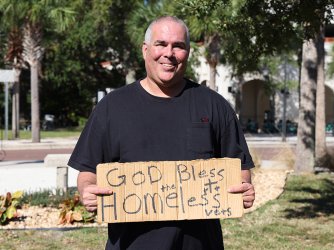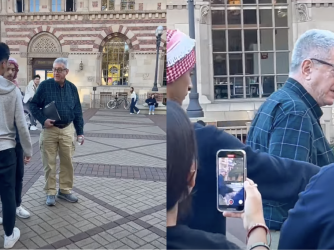Table of Contents
Misunderstanding ‘Time, Place, and Manner’ Restrictions
This fall, FIRE is writing a blog series about how schools can reform their problematic speech codes and earn a "green light" rating from us—a distinction currently awarded to just 16 of the more than 400 schools in our Spotlight database, but one we hope to be able to award to many more in the years to come. In this series, we are discussing common problems with campus speech codes, focusing on examples from schools that are just a few small changes away from earning a green light rating.
So far, we have examined how universities restrict speech by mandating "civility," improperly broadening the definition of "harassment," restricting students' online expression, and placing undue restrictions on campus postings. Today we look at another trouble spot: policies governing student protests, demonstrations, and other expressive activities on campus.
The problems with this type of policy can be grouped broadly into three categories:
- Provisions restricting expressive activities to small and/or out-of-the-way areas of campus (better known as "free speech zones");
- Provisions requiring advance notice or even prior approval for expressive activities; and
- Provisions requiring student groups to provide (and pay for) extra security based on the controversial or unpopular content of their expressive activities.
Public universities often try to justify restrictive demonstration policies by arguing that they are "reasonable time, place, and manner" regulations, which are permissible under First Amendment law. However, a valid time, place, and manner regulation must be "justified without reference to the content of the regulated speech," must be "narrowly tailored to serve a significant governmental interest," and must "leave open ample alternative channels for communication of the information." Clark v. Community for Creative Non-Violence, 468 U.S. 288, 293 (1984). So, for example, a university might establish regulations preventing demonstrations from interfering with pedestrian or vehicular traffic or place restrictions on the use of amplified sound so that expressive activities do not interfere with classes in progress. Those are reasonable, content—neutral provisions that serve a significant governmental interest (i.e., keeping traffic flowing or allowing classes to continue) while still allowing speakers other means to spread their message.
Too many universities, however, mistake a narrow exception as carte blanche to regulate student demonstrations. Regulations that limit free speech to just one or two areas of campus or require prior administrative approval for all expressive activity are not reasonable time, place, and manner regulations.
Frequently, universities will confine students' expressive activities to a tiny "free speech area" or "free speech zone." This is the case at Elizabeth City State University (ECSU) in North Carolina, for example, whose "Clubs and Organizations Policy" provides that "[t]he designated area on campus for ‘free speech' events is the Outdoor Classroom." (The outdoor classroom is pictured, complete with protesters, in this article.) Although the university claims that this policy is a "reasonable regulation[ ] of time, place, and manner, so that disruption of normal educational activities is avoided," restricting expressive activities to just one area of ECSU's 200-acre campus is far broader than necessary. Indeed, several courts have held university free speech zone policies unconstitutional, including just this past summer at the University of Cincinnati. Although the Cincinnati administration had vigorously defended the policy against FIRE's criticisms dating back to 2008, the federal judge hearing the case found that the university's policy "violates the First Amendment and cannot stand." And in 2004, addressing the constitutionality of Texas Tech University's former free speech zone policy, another federal judge determined that Texas Tech's policy must be interpreted to allow free speech for students on "park areas, sidewalks, streets, or other similar common areas ... irrespective of whether the University has so designated them or not." Roberts v. Haragan, 346 F. Supp. 2d 853 (N.D. Tex. 2004).
Another common flaw in demonstration policies is a requirement that students give advanced notice of all expressive activities or, worse, that they obtain prior administrative approval for all such activities. At the University of Arizona, for example, "[a]ctivities/events that are expected to attract more than 25 people, or that are advertised in any medium, must be preceeded [sic] by completion and approval of a Campus Use Activity Form not less than ten (10) business days prior to the expected time of such activities."
Regarding the first point, although it is understandable that universities will want prior notice of student demonstrations where possible, there must always be some allowance for unscheduled expressive activities. This is because demonstrations and protests are often spontaneous responses to unfolding events (think of the Virginia Tech massacre, or 9/11), and requiring students to wait any meaningful amount of time to hold a protest might significantly diminish, if not altogether eliminate, the impact of their message.
With respect to the second point, requiring prior administrative approval of student expressive activities is almost certainly an unconstitutional prior restraint on speech. As the U.S. Supreme Court has stated: "It is offensive—not only to the values protected by the First Amendment, but to the very notion of a free society—that in the context of everyday public discourse a citizen must first inform the government of her desire to speak to her neighbors and then obtain a permit to do so." Watchtower Bible and Tract Society of NY, Inc. v. Village of Stratton, 536 U.S. 150, 165-66 (2002).
A third common problem with university demonstration policies is that they often place a burden on controversial speech by making student organizations responsible, financially or otherwise, for providing additional security at events that may result in controversy. The Supreme Court addressed this issue in Forsyth County v. Nationalist Movement, 505 U.S. 123 (1992), when it struck down an ordinance that permitted the local government to set varying fees for events based upon the government's opinion of the likely reaction to the event's message. Criticizing the ordinance, the Court wrote that "[t]he fee assessed will depend on the administrator's measure of the amount of hostility likely to be created by the speech based on its content. Those wishing to express views unpopular with bottle throwers, for example, may have to pay more for their permit." Deciding that such a determination required county administrators to "examine the content of the message that is conveyed," the Court wrote that "[l]isteners' reaction to speech is not a content-neutral basis for regulation....Speech cannot be financially burdened, any more than it can be punished or banned, simply because it might offend a hostile mob."
Nonetheless, such policies are common at universities around the country. At Temple University, for example, "[t]he sponsoring student organization must take adequate precautions for the security of attendees at an event, as determined by Campus Safety, in conjunction with the Office of Student Activities and Student Center Operations." The policy provides that "[i]ncreased risks (e.g., threats received) will increase the security requirement," and that "[f]ailure to adhere to these security policies may result in an administrative and/or disciplinary sanction."
And at the University of Arizona, "[w]here a proposed event presents a concern for the health or safety of the attendees, the University Community, or the public, or potential damage to University property or facilities, the University may require the event sponsor to pay security costs adequate for the protection of those who may attend the event and the University property involved." Factors to be considered in assessing the cost include "any prior incidents of injury or property damage during similar events at the University or other institutions." Allowing violent protestors to price certain types of speech out of the marketplace of ideas amounts to a heckler's veto on controversial or unpopular speech.
Too many universities, including the ones cited here, place inappropriate restrictions on student demonstrations and campus expressive activities, and could significantly improve the climate for free speech at their institution by revising their policies along the lines discussed above. Tune in next week for the final installment in this blog series, a discussion of "bias incident reporting" policies.
Recent Articles
FIRE’s award-winning Newsdesk covers the free speech news you need to stay informed.


FIRE Statement: X Corp's lawsuit and Texas's investigation into Media Matters for America are deeply misguided

Anonymous speech is as American as apple pie
